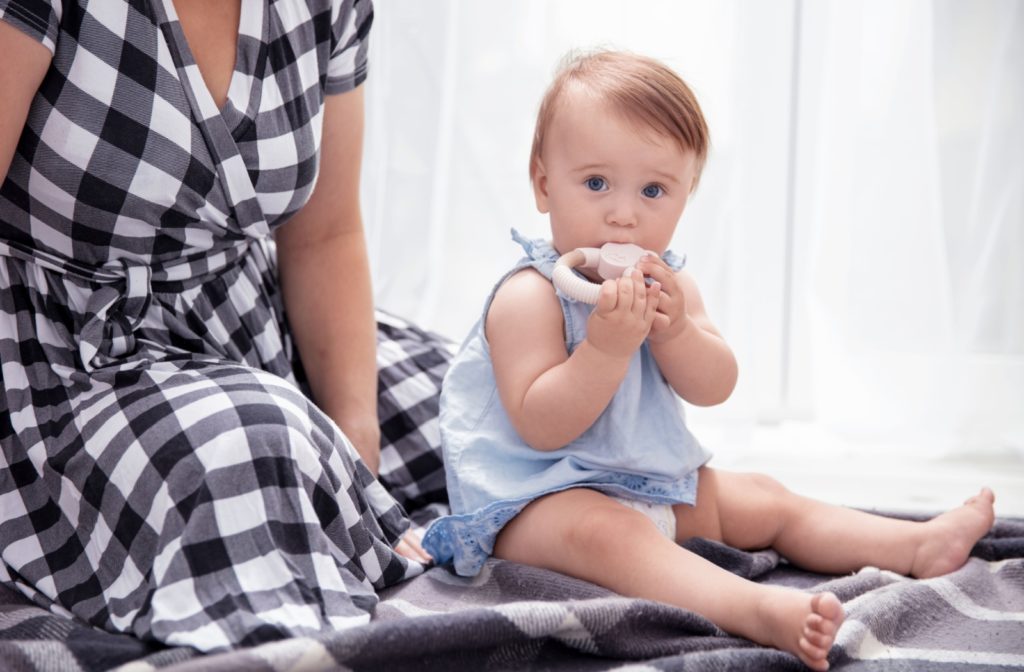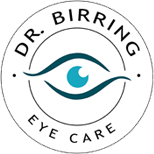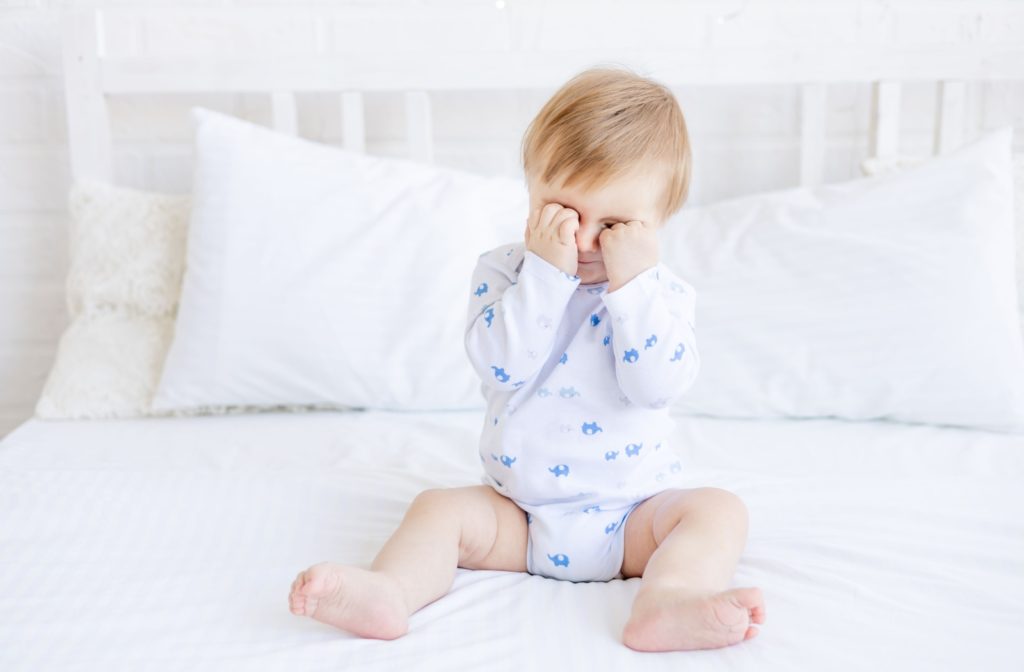A baby gently rubbing their eyes is a familiar sight for many parents, often accompanied by a yawn or a little whimper. While it’s common for babies to rub their eyes, it can leave parents wondering if it’s just a sign of tiredness or if it could be from another reason.
Your baby may rub their eyes for several reasons:
- Tiredness
- Allergies
- Teething
- An eye infection
- Vision problem
An eye exam between birth and 24 months can help determine the cause of excessive eye rubbing in babies.
Eye Rubbing Is Normal in Babies
As your baby grows and develops, you may notice them rubbing their eyes as a natural part of their physical development. This action is one of the first movements they learn, and it can serve as a way for them to self-soothe or signal that they’re ready for rest.
So if your little one rubs their eyes frequently, know it’s just another milestone in their growth journey. No need to worry! Just keep track of changes and address any concerns with your eye doctor during their first eye exam. A baby’s first eye exam is usually between 6 and 9 months. This exam helps catch potential problems early on to support healthy vision development.
Common Reasons Why Babies Rub Their Eyes
Babies rub their eyes in response to several cues, either from normal developmental responses or discomfort from other reasons. Here are the most common reasons why your baby rubs their eyes.
Tiredness
The simplest and most common reason is fatigue. Just like adults, babies rub their eyes when they’re sleepy. It’s one of their ways to signal that they’re ready for a nap or bedtime. When your little one starts rubbing their eyes, it can be a cue that they need rest.
Allergies
Allergies can also cause eye rubbing. If allergens like dust, pollen, or pet dander are around, your baby might rub their eyes to relieve itchiness. Additional signs of allergies to watch for can include a runny nose or sneezing.

Teething
It’s surprising, but teething can lead to eye rubbing. The discomfort from teething can cause a baby to rub their eyes. The pain from teething in upper teeth can spread from the gums to other areas of the face, like the ears and eyes.
Eye Infection
Eye rubbing in babies can be a sign of an eye infection. Bacterial or viral infections can cause redness, swelling, and discomfort in the eyes, leading to frequent rubbing. If you notice any unusual symptoms like discharge or crustiness around your baby’s eyes, consult an eye doctor for appropriate treatment.
Vision Problem
Frequent eye rubbing in babies may indicate a vision problem. Babies with refractive errors may rub their eyes to try and adjust their focus because of blurry vision. Congenital cataracts are also another vision problem in babies.
Importance of Eye Exams
Regular eye exams are crucial for ensuring your baby’s vision develops correctly. Frequent eye rubbing or accompanying redness, watery eyes, or sensitivity to light warrants a consultation with your baby’s eye doctor to rule out an underlying vision problem. Early detection of vision problems can lead to better treatment outcomes and promote healthy visual development for your little one.
Distinguishing Between Normal & Concerned Eye Rubbing
While occasional eye rubbing is normal, it’s important to know when it might signal something more serious. Persistent rubbing, especially if accompanied by other symptoms like swelling or discharge, may indicate an underlying issue that requires medical attention. If you’re unsure, it’s always better to err on the side of caution and seek professional advice.
Tips for Reducing Eye Rubbing in Your Baby
Here are some tips to manage your baby’s eye health depending on the cause of their eye rubbing:
- Monitor sleep patterns: Make sure your baby gets enough sleep. Establishing a regular sleep routine can help prevent tiredness-related eye rubbing.
- Maintain a clean environment: Keep your home dust-free and minimize exposure to allergens. Use air purifiers if necessary, and if you have a pet, regularly clean pet hair.
- Use soft washcloths: If your baby rubs their eyes frequently, gently clean their face with a clean and damp cloth to remove irritants.
- Introduce teething relief: Offer teething toys or chilled teethers to help ease gum discomfort, potentially reducing eye rubbing.
Caring for Your Baby’s Eyes
While eye rubbing in babies is often harmless, it’s important to remain vigilant. Understanding the common causes and taking preventive measures can go a long way in contributing to your baby’s comfort and eye health.
Eye exams are valuable for monitoring your baby’s vision development and catching potential problems early. If you have concerns about your baby’s eye rubbing, book an appointment with Birring Eyecare in Mississauga for personalized eye care and treatment. Your little one’s eyes are their window to the world—let’s keep them shining bright!



